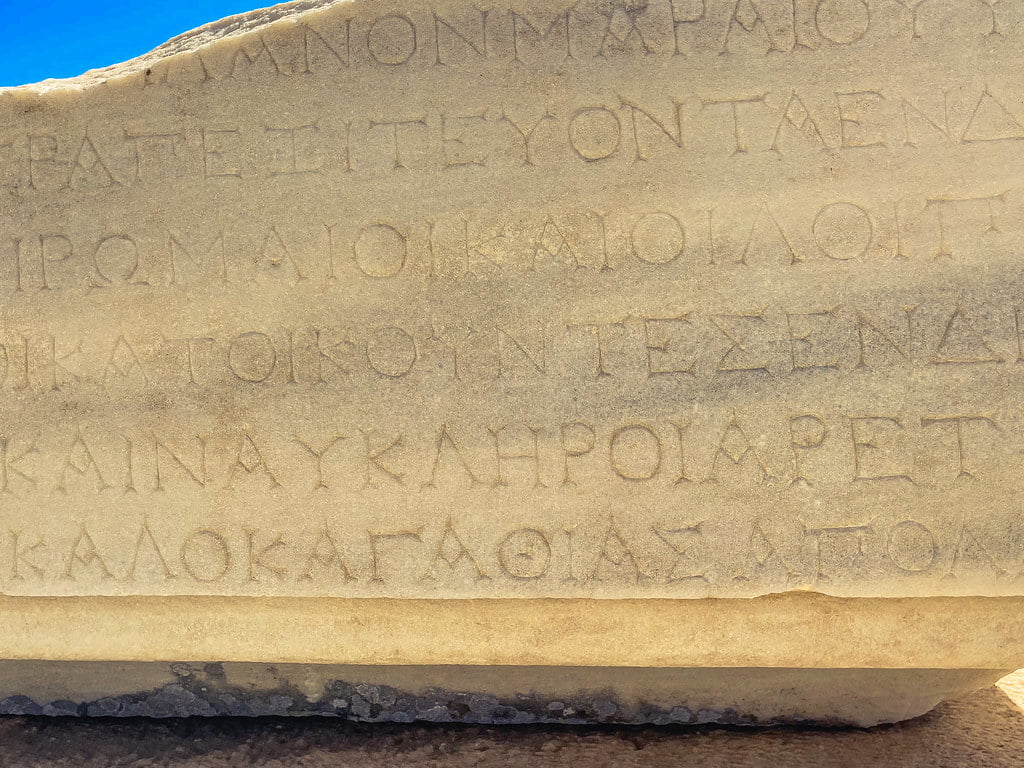Socrates: The Father of Western Philosophy
Socrates is often referred to as the father of Western philosophy. Unlike many of his contemporaries, Socrates didn’t write down his teachings. Instead, he engaged with the people of Athens in a method that has become famously known as the Socratic method—a series of questions aimed at stimulating critical thinking and exposing underlying beliefs. Socrates believed in the importance of questioning everything, including the values of society, making him one of the most influential of the famous Greek philosophers. His life ended in tragedy when he was sentenced to death by hemlock for “corrupting the youth” of Athens, yet his legacy lives on through his student, Plato.
Plato: The Visionary
Plato, one of Socrates’ most famous students, is another giant among the famous Greek philosophers. Plato’s works, unlike those of Socrates, have survived in written form, allowing us to explore his ideas in depth. His most notable work, The Republic, introduces the idea of an ideal society governed by philosopher-kings. Plato’s influence stretches beyond politics, as he also delved into metaphysics and epistemology, famously using the allegory of the cave to explain his theory of forms—the idea that the material world is a shadow of the true, unchanging reality. Plato also founded the Academy, one of the earliest known educational institutions in Western history.
Aristotle: The Polymath
A student of Plato, Aristotle took a different approach from his mentor. While Plato emphasized the world of ideas, Aristotle was more focused on the empirical world, laying the groundwork for what we now consider the scientific method. Aristotle is unique among the famous Greek philosophers for his wide-ranging interests, which included politics, ethics, biology, and physics. His book, Nicomachean Ethics, remains one of the most important texts in moral philosophy, emphasizing the concept of virtue and the “golden mean”—the idea that moral virtue lies between two extremes. Aristotle’s influence has been so profound that even today, his work underpins much of Western intellectual tradition.
Pythagoras: The Philosopher Mathematician
While many know Pythagoras for his famous theorem in geometry, his contributions to philosophy are just as significant. Pythagoras believed that numbers were the essence of all things, making him one of the earliest proponents of the idea that mathematics and the universe are deeply connected. His influence stretches into metaphysics and religious philosophy, with his teachings forming the foundation of Pythagoreanism, a belief system that explored the relationship between the cosmos and the individual soul. This places Pythagoras among the famous Greek philosophers who have impacted both the world of ideas and practical sciences.
Heraclitus: The Philosopher of Change
Heraclitus is often remembered for his assertion that “you cannot step into the same river twice,” emphasizing the idea that change is the fundamental nature of the universe. Unlike many other famous Greek philosophers, Heraclitus’ focus was on flux and the constant state of becoming. His philosophy revolves around the concept that opposites are necessary for harmony, and that conflict and change are essential to life. Though not as widely discussed as Socrates, Plato, or Aristotle, Heraclitus’ ideas have been influential in shaping our understanding of the dynamic nature of reality.
Epicurus: The Philosopher of Happiness
Epicurus is another significant figure among famous Greek philosophers, known primarily for his philosophy on happiness and the pursuit of pleasure. Contrary to the common misunderstanding, Epicureanism does not promote hedonism, but rather advocates for simple, moderate pleasures as the path to a happy life. Epicurus emphasized the avoidance of pain and suffering, suggesting that true happiness could be found through friendship, intellectual pursuits, and living a modest life. His ideas laid the foundation for modern ethics and psychology, and they remain highly relevant in today’s discussions of mental well-being and happiness.
Zeno of Citium: The Stoic Philosopher
Zeno of Citium founded the school of Stoicism, which became one of the most influential philosophies in the Roman Empire and continues to have an impact today. Stoicism teaches that virtue is the highest good, and that we should live in harmony with nature, accepting what we cannot control while mastering our own responses and emotions. Stoicism’s focus on inner peace and resilience in the face of adversity makes Zeno one of the most practical and influential among the famous Greek philosophers. His teachings have inspired many modern thinkers, from politicians to business leaders.
The Enduring Legacy of Famous Greek Philosophers
The contributions of these famous Greek philosophers are impossible to overstate. Their works have not only shaped the intellectual landscape of their time but continue to inform modern thought. From ethics to politics, mathematics to metaphysics, the insights of Socrates, Plato, Aristotle, and their contemporaries remain at the heart of Western philosophy. Each of these philosophers approached life’s biggest questions from unique angles, yet their collective wisdom offers a timeless guide for understanding the world and our place within it.
As we continue to explore the depths of human thought and experience, the famous Greek philosophers will always be there as a reminder of the power of inquiry, reason, and the pursuit of knowledge. Whether you’re studying philosophy or simply seeking wisdom in your everyday life, their teachings are as relevant today as they were over two thousand years ago.









